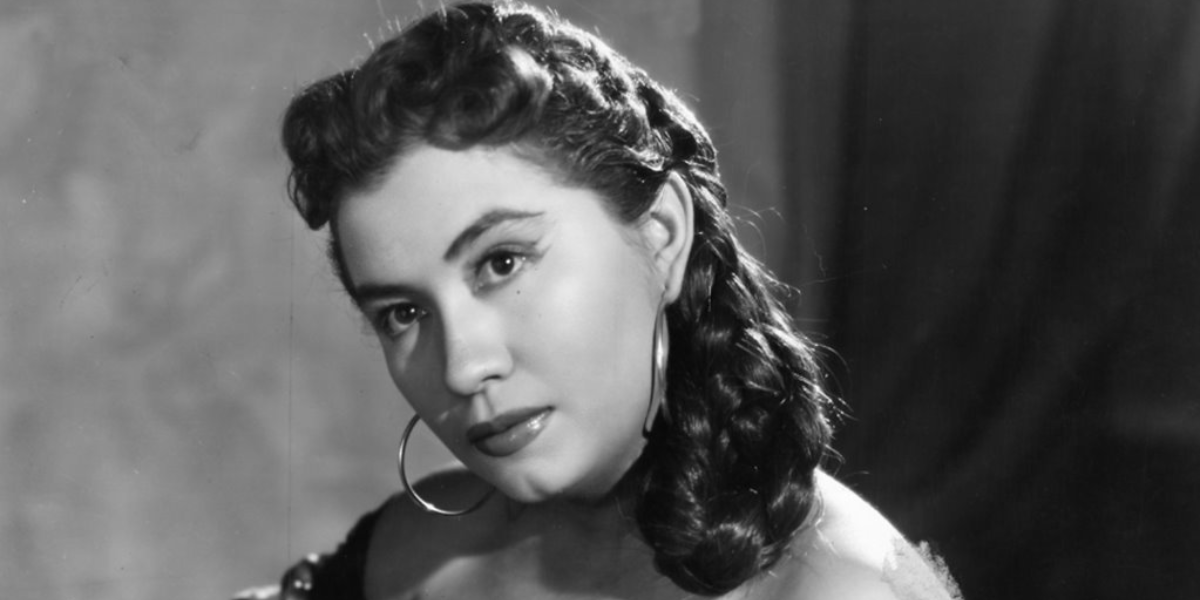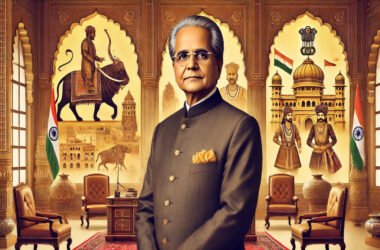The world of Mexican music owes much of its vibrancy to Lola Beltrán, one of the most iconic figures to ever grace the stage. Known as “La Reina de la Música Ranchera” (The Queen of Ranchera Music), Lola Beltrán is celebrated for her powerful voice, unmatched emotional delivery, and a legacy that continues to influence generations. Her career spanned several decades, leaving behind a collection of songs that resonate with the heartfelt essence of Mexican culture. From her humble beginnings to becoming a national treasure, Lola Beltrán’s life and music remain cherished by those who value tradition, passion, and authenticity.
The Beginnings of a Legend
Lola Beltrán, born María Lucila Beltrán Ruiz in Rosario, Sinaloa, Mexico, on March 7, 1932, grew up surrounded by music in a region known for its deep-rooted traditions. Her early exposure to Mexican folk music, particularly ranchera, would set the stage for her future as one of the genre’s most recognized voices. Despite her family’s modest means, Beltrán pursued her dreams, displaying resilience and talent from a young age.
Breaking into the Music Industry
Beltrán’s journey into the music industry was not straightforward, as she faced numerous challenges typical for female artists of her time. She moved to Mexico City in search of greater opportunities, determined to make her mark. Her career began with minor singing roles at local events, but fate intervened when she was discovered by José Alfredo Jiménez, a celebrated composer and performer who recognized her talent and introduced her to influential figures in the industry. Under his guidance, Beltrán refined her vocal techniques, mastering the nuances of ranchera music, which demands both vocal power and the ability to convey profound emotion.
Rising to Fame with Ranchera Music
Ranchera music, a genre deeply woven into Mexican culture, became the foundation of Lola Beltrán’s career. Her voice was particularly suited for the emotive, often dramatic style of rancheras. Songs like La Cigarra, Cucurrucucú Paloma, and El Rey became synonymous with her name. However, she could turn simple melodies into grand expressions of sorrow, joy, and patriotism, capturing the soul of her listeners. Beltrán’s renditions of these songs helped bring ranchera music from rural Mexico to an international audience.
Collaborations with Mariachi Ensembles
An essential element of Beltrán’s success was her collaborations with mariachi bands, which were key to her musical identity. Moreover, the classic mariachi ensemble, with its powerful blend of trumpets, violins, and guitars, complemented her vocal style. Moreover, Mariachi Vargas de Tecalitlán, one of Mexico’s most famous mariachi groups, often accompanied Beltrán, allowing her voice to blend with their sound harmoniously. This collaboration became a hallmark of her performances, setting a standard for ranchera music presentations.
Impact on Mexican Film and Television
Beyond music, Lola Beltrán made her mark on Mexican cinema and television, broadening her influence. She starred in several films, including El Gallo de Oro and Flor Silvestre, where her music and acting ability brought Mexican culture to life on screen. Her appearances on television, particularly in her show, Noches Tapatías, cemented her status as a household name. These platforms enabled her to reach a broader audience, establishing her as a cultural ambassador who brought traditional Mexican art forms to the mainstream.
A Voice That Defined an Era
Beltrán’s voice, often described as powerful and haunting, set her apart from other singers. Known for her ability to sustain high notes with clarity and depth, she brought a unique intensity to each performance. In addition, critics often marveled at her voice’s strength and emotional reach, which seemed to embody the collective experiences of the Mexican people. Her voice, filled with passion and resilience, became an emblem of Mexico’s rich cultural heritage.
International Recognition and Legacy
Lola Beltrán’s fame extended beyond Mexico, with her music gaining popularity in other parts of Latin America and the United States. She performed in prestigious venues, including the Olympia in Paris and Carnegie Hall in New York, showcasing Mexican culture on a global stage. Her legacy has inspired numerous artists, and her influence is particularly evident in the careers of modern ranchera singers like Aida Cuevas and Lila Downs, who continue to honor Beltrán’s work.
Honors and Awards
Beltrán’s contributions did not go unrecognized, as she received numerous awards for her work in music and film. In addition, she was honored with the prestigious Premio Nacional de Arte and Premio ACE in New York, celebrating her contributions to Latin American culture. Moreover, these accolades acknowledged her as a pivotal figure in preserving and promoting Mexican traditions. Her induction into the International Latin Music Hall of Fame underscored her lasting influence, securing her place in the pantheon of musical legends.
The Cultural Symbolism of Lola Beltrán
Lola Beltrán embodied the spirit of Mexican nationalism, often performing in traditional attire that reflected her roots. However, her presence on stage, in long, elegant dresses and dramatic shawls, became as iconic as her voice, symbolizing the pride Mexicans felt for their heritage. Beltrán’s music often centered around themes of love, loyalty, and longing for one’s homeland—emotions that resonated deeply with her audience.
Continuing Influence in Contemporary Music
Today, Lola Beltrán’s influence remains evident, with contemporary artists referencing her work and style. Her recordings continue to inspire younger generations, serving as a bridge between the past and present. Moreover, the emotional authenticity of her songs has ensured that her music remains relevant, reflecting timeless human emotions that transcend generational gaps.
Family and Personal Life
Despite her public persona, Lola Beltrán was known for her close ties with her family. Her marriage to Alfredo Leal, a renowned bullfighter, was a celebrated union, and together, they had a daughter, María Elena Leal, who continues her mother’s musical legacy. In addition, María Elena has become a singer in her own right, performing her mother’s songs and helping to preserve the artistry that Lola Beltrán left behind.
Death and Posthumous Honors
Lola Beltrán passed away on March 24, 1996, at the age of 64, leaving behind a legacy that continues to resonate. Her funeral drew crowds of fans and fellow artists who mourned the loss of a beloved icon. Since her passing, numerous tributes have honored her memory, including statues, plaques, and special events dedicated to her life and work. Her influence has remained powerful in the years following her death, with fans and musicians alike celebrating her legacy.
Exploring Lola Beltrán’s Discography
For those looking to delve into Beltrán’s music, a few standout albums capture her talent and versatility. “La Grande” and “La Voz de México” feature some of her most famous songs, reflecting her mastery of ranchera music. In addition, these collections provide a glimpse into her range as a performer, showcasing her ability to interpret a variety of musical styles within the genre.
How Lola Beltrán’s Music Captured Mexican Identity
Beltrán’s music holds a special place in Mexican identity, resonating with themes central to the culture. Moreover, her songs, filled with a sense of pride, sorrow, and joy, reflect the complex emotions associated with Mexican life. Through her voice, Beltrán gave life to songs that spoke to the collective heart of Mexico, addressing themes of love, family, and loyalty to one’s country. Her music served as a unifying force, bringing people together across social and regional divides.
Lola Beltrán and the Evolution of Ranchera Music
Lola Beltrán’s career coincided with significant changes in the music industry, and her work helped elevate ranchera music to new heights. However, as the genre evolved, Beltrán adapted her style, adding elements of bolero and other Latin music styles. Her ability to innovate within the framework of traditional music enabled her to remain relevant, showing that ranchera music could evolve while staying true to its roots.
Remembering Lola Beltrán Today
The impact of Lola Beltrán’s life and career is still felt today, especially in her hometown of Rosario, where her legacy is celebrated with annual festivals and commemorations. Her life story continues to inspire, serving as a reminder of what can be achieved through dedication and passion. For fans and newcomers alike, Lola Beltrán’s story is a testament to the enduring power of music to transcend time and bring people together.








